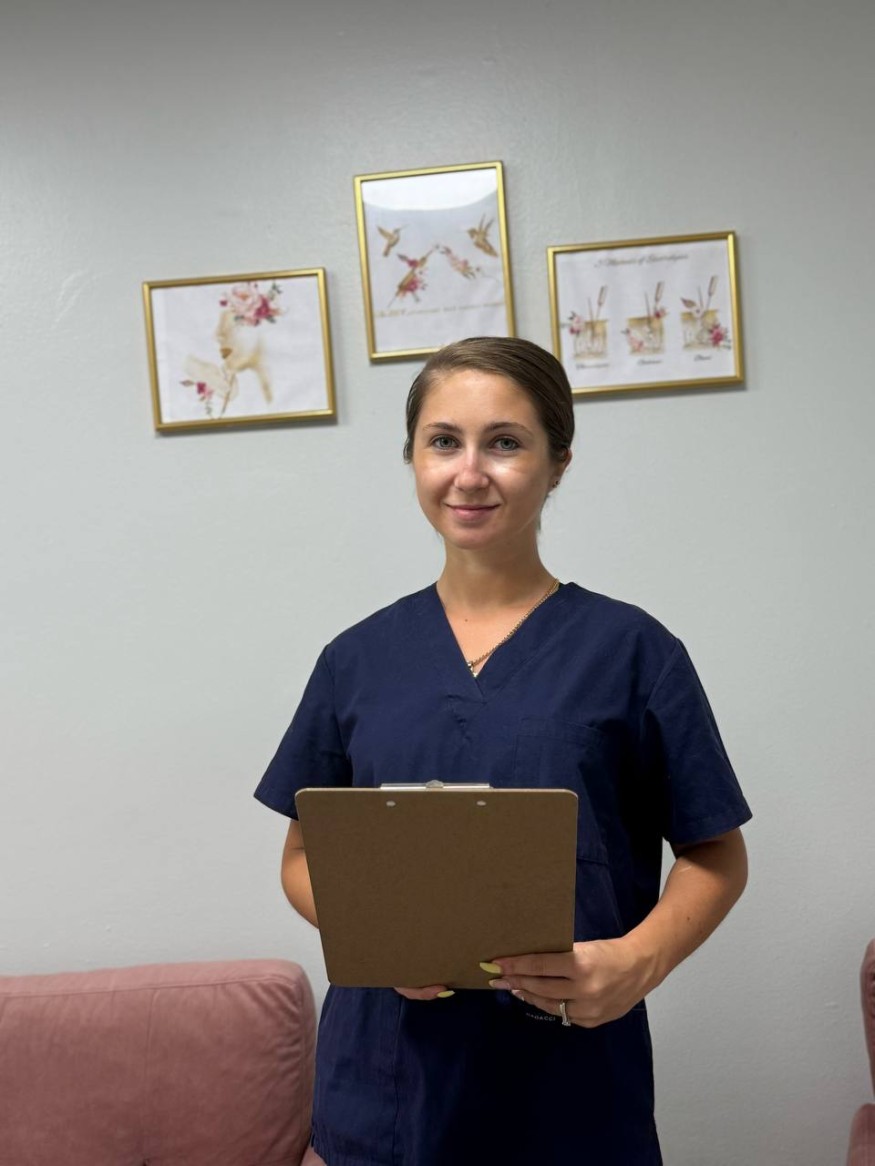
At the 8th Annual Congress on Polycystic Ovary Syndrome (PCOS) and Fertility, held on June 12–13, 2025, in London, U.S.-based electrology specialist Marta Ivaskevych delivered a keynote presentation that drew widespread attention from the medical and scientific community. Her talk, titled "Overcoming PCOS and the Power of Electrolysis," was based on her six years of hands-on experience as a specialist, as well as a four-year clinical study, and offered compelling evidence in favor of electrolysis as a primary treatment method for hormonally induced facial hair growth in women with PCOS.
Now in its eighth year, the event serves as a major international platform for advancing both scientific insight and clinical strategies in the management of Polycystic Ovary Syndrome (PCOS). It brings together leading experts in gynecology, reproductive endocrinology, dermatology, and women's health from around the world, fostering interdisciplinary collaboration and the integration of research into evidence-based care.
The 2025 edition, held under the theme "Modern Solutions in PCOS and Fertility Treatment," focused on the complex, multifactorial nature of PCOS. This condition affects up to 10% of women of reproductive age globally and often presents with a combination of hormonal imbalance, ovulatory dysfunction, insulin resistance, and hyperandrogenism. The congress also addressed the syndrome's wider psychosocial impact, including infertility, mood disorders, and reduced quality of life, which are frequently underdiagnosed or undertreated.
Through keynote sessions, symposia, hands-on workshops, and forums for young investigators, the congress provided a comprehensive platform for discussing diagnostic innovation, individualized treatment pathways, and the integration of reproductive endocrinology with adjacent disciplines such as nutrition, mental health, and digital therapeutics. Delegates were eligible for CME accreditation and offered opportunities to publish in peer-reviewed journals, underscoring the congress's role as a cornerstone event in the global PCOS research and care community.
Ivaskevych's presentation was grounded in her peer-reviewed publication, "Clinical Efficacy of Electrolysis and Laser Hair Removal in PCOS Patients," which is now published in The American Journal of Medical Sciences and Pharmaceutical Research (Vol. 07, Issue 06, 2025). The study followed 203 women with diagnosed PCOS who completed a full course of electrolysis treatment between 2021 and 2025. It focused on hormonally sensitive facial areas—such as the chin, cheeks, upper lip, and sideburns—where light-based hair removal methods, particularly laser, often fail or trigger paradoxical hypertrichosis. The research compared electrolysis and laser regarding clinical effectiveness, safety, cost, and patient satisfaction. Electrolysis demonstrated consistently superior results across all skin types and hair colors, with 86% of participants reporting high satisfaction and only 11% showing visible regrowth after 12 months.
These findings were especially relevant in cases involving light hair, deep follicles, or dense androgenic zones—areas where laser hair removal frequently underperforms. Moreover, electrolysis avoids the pigment-related limitations of laser technologies and has proven more adaptable across a wide range of clinical scenarios. While electrolysis does require more sessions, the study concluded that it offers a more reliable, cost-effective, and permanent solution for treating facial hirsutism in women with PCOS.
Ivaskevych's talk resonated deeply with the international audience, not only due to the strength of the clinical evidence but also because of her dual perspective as both a practitioner and a former PCOS patient. She shared her personal experience of undergoing two surgeries and years of managing hirsutism, which gave her presentation a unique emotional and practical depth. As a licensed electrologist in the state of Florida, Ivaskevych holds certifications from the Berkowits School of Electrolysis (New York) and the Florida Academy of Medical Aesthetics, and she is a member of the American Electrology Association. She is also the founder of IMS Electrolysis in Hallandale, Florida, a clinic that specializes in managing hormonally induced hair growth disorders.
Her presentation included detailed protocols, clinical case examples, and methodology, sparking thoughtful discussion among conference attendees—including endocrinologists, dermatologists, and fertility specialists—about the broader role of hirsutism as both a medical and quality-of-life issue. For her contribution, Ivaskevych was honored with the Inspiring Patient Advocate Award, presented by the congress organizers. Reviewers highlighted the study's practical significance, robust methodology, and emotional relevance.
"Receiving this award at such a prestigious event is a personal milestone," Ivaskevych commented. "But more importantly, it marks a turning point in approaching long-overlooked aspects of PCOS care. I'm proud of this work—and I'm just getting started."
At the conclusion of her presentation, she announced plans to launch a training center for electrology practitioners working with clients affected by hormonal conditions. The curriculum will include modules on anatomy, endocrinology, and personalized treatment planning to help advance the field and improve patient outcomes.
Her study has already drawn interest from academic institutions seeking to replicate and expand upon the clinical protocol. Researchers and clinicians alike noted the structured data collection, long-term follow-up, and integration of patient-reported outcomes as key strengths that support the clinical viability of electrolysis.
Marta Ivaskevych's presence at the 2025 PCOS Congress underscored a growing interest in electrolysis as an evidence-based solution for one of the most visible and distressing symptoms of PCOS. Her research contributes to current medical knowledge and encourages the development of more inclusive, patient-centered approaches to managing hormonal disorders and advancing women's health worldwide.
© 2026 ScienceTimes.com All rights reserved. Do not reproduce without permission. The window to the world of Science Times.











